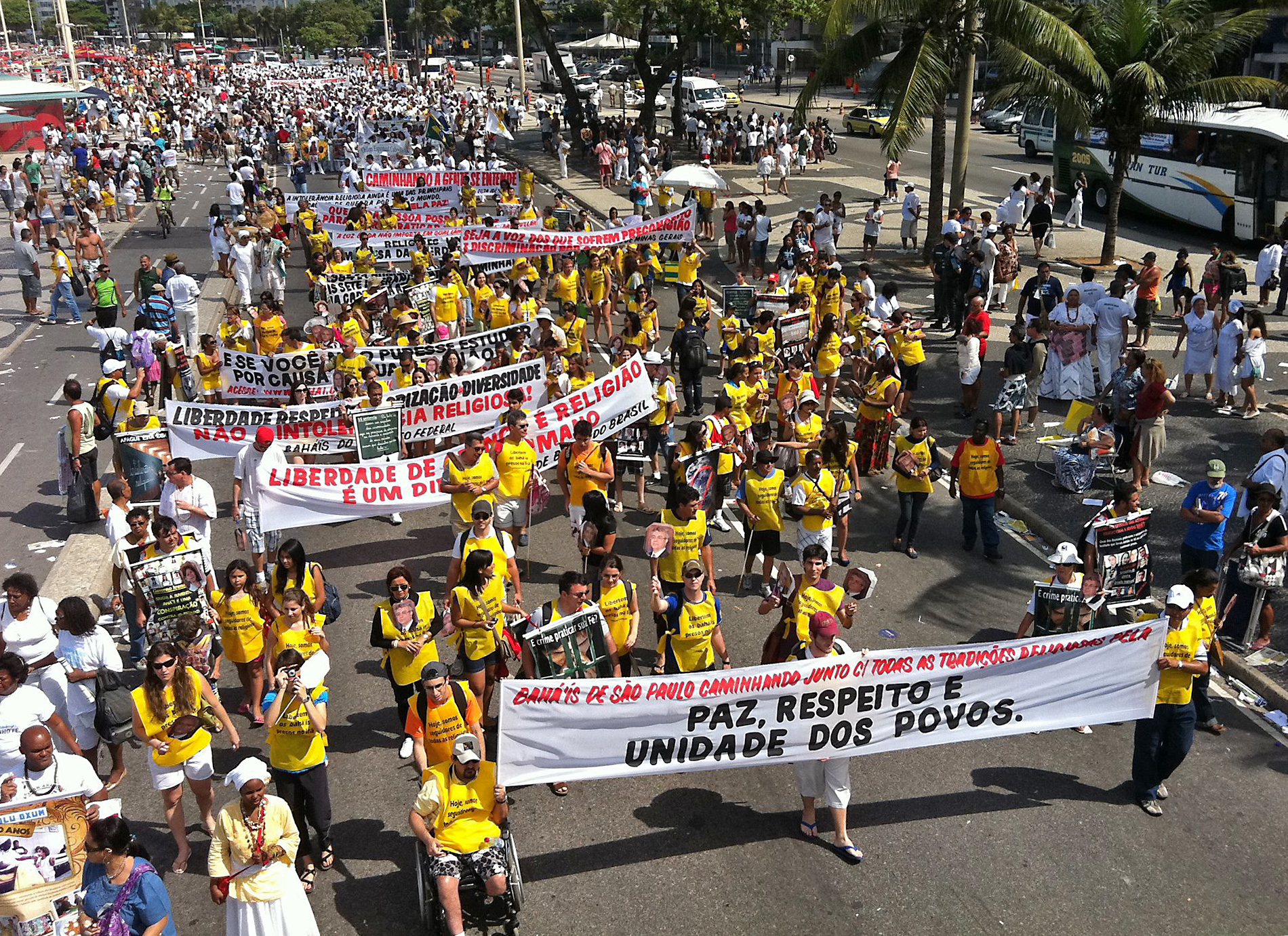
GENEVA, SWITZERLAND — Iran's former Baha'i leaders begin their fifth year in prison today amid an intensification of the persecution of their co-religionists.
The seven prisoners each face the bleak prospect of 16 more years in jail for crimes they did not commit. Next week also marks the first anniversary of raids on homes of Baha'is associated with an informal initiative offering higher education to community members barred from university. Nine educators later received harsh prison sentences.
The detention and conviction of these and other Baha'is is a reflection of the oppression facing all Iranians who desire freedom and the progress of their country, said the Universal House of Justice in a letter dated 11 May 2012 sent to the Baha'is of Iran.
In its message, the Universal House of Justice noted how the intensifying cruelty towards the Iranian Baha'i community is now also engulfing children. Among recent attacks, the letter highlighted the confinement in prison for a few days of a two-year old boy with his mother, the beating and burning of the hand of a school pupil by her teacher after the girl did not take part in congregational prayers, and the violent abduction by officials of a mother before the eyes of her two young children.

"From schoolchildren to the elderly, from the seven former leaders to ordinary villagers, no Baha'i in Iran is spared the cruel and calculated persecution which the Iranian government and its agents are constantly devising," said Diane Ala'i, the Baha'i International Community's representative to the United Nations in Geneva.
The seven former leaders have been given the longest sentences – 20 years each – of any of the prisoners of conscience currently held in Iranian jails, Ms. Ala'i added. "Conditions are harsh with poor food and bad sanitation and most of them have experienced significant health problems. Yet during these four years, not one of them has been granted any type of furlough – something to which a prisoner is entitled under Iranian law."
Global support
The Universal House of Justice observed in its letter that, over the past year, governments and organizations have continued to defend the rights of Baha'is and other oppressed Iranians. Among such supporters, statesmen and officials – including some Muslim politicians in both the East and the West – civil agencies, universities and prominent personalities have declared the persecution of Baha'is to be unjust and have called for it to cease.
Recent action has included the unanimous passing of a resolution in the United States Senate – on 29 March – calling for the release of the seven former leaders. Three days later, the plight of the prisoners captured the public's attention in 12 of the world's major cities, when widespread publicity marked the combined total of 10,000 days that the seven had spent behind bars.
Fair-minded Iranians, including artists, are also defending the rights of their oppressed Baha'i compatriots and demanding their freedom, noted the Universal House of Justice.
"Blind prejudice and superstition pervades Iran today and irreparable damage has been done to the name and reputation of Islam," said Diane Ala'i. "We welcome and join with every effort made by people of good will – both in Iran and around the world – to condemn the extent and violence of the oppressions faced by the people of Iran."
The former Baha'i leaders are Fariba Kamalabadi, Jamaloddin Khanjani, Afif Naeimi, Saeid Rezaie, Mahvash Sabet, Behrouz Tavakkoli and Vahid Tizfahm. Ms. Sabet was detained on 5 March 2008. Her six colleagues were arrested in raids on their homes on 14 May 2008.
Prior to their arrests, the seven served on an ad hoc national-level group which attended to the spiritual and social needs of Iran's Baha'i community. During six brief court sessions, devoid of due legal process, the seven faced trumped-up charges that were all rejected completely and categorically by the defendants.
They were each sentenced to 20-years imprisonment. The five men are currently being held at Gohardasht prison, some 50 kilometers west of Tehran. The two women are in Evin prison in the capital.
Some 39 homes of Baha'is associated with the Baha'i Institute for Higher Education (BIHE) were raided in a coordinated attack in May 2011. Educator Kamran Mortezaie is now serving a five-year jail term. Mahmoud Badavam, Noushin Khadem, Farhad Sedghi, Riaz Sobhani and Ramin Zibaie are each serving four year prison sentences. The judgments against them cast their activities in support of BIHE as crimes and as "evidence" of their purported aim to subvert the State. Two psychology teachers – Faran Hesami and her husband Kamran Rahimian – were also sentenced to four years in prison. Another BIHE administrator Vahid Mahmoudi was released on 8 January 2012 after his five-year sentence was reportedly suspended.
Since August 2004, some 556 Baha'is have been arrested in Iran. There are about 109 Iranian Baha'is currently in prison because of their religion. To date, the cases of some 451 Baha'is are still active with authorities.